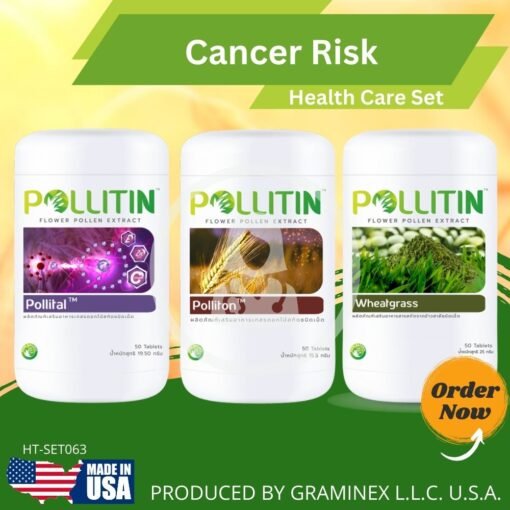Cancer
How can I prevent cancer?
How can I prevent cancer?
Cancer is a life-threatening disease that can have devastating effects on those diagnosed with it. As such, it is important to take steps to prevent cancer from occurring in the first place. Fortunately, there are several things that you can do to help decrease your risk of developing this potentially deadly illness.
For starters, one of the most important aspects of preventing cancer is maintaining a healthy diet. Research has shown that eating plenty of fruits and vegetables can help reduce your chances of some types of cancer. Additionally, reducing your intake of unhealthy fats and processed foods can also lower your risk. Incorporating physical activity into your daily routine is another great way to reduce your risk for cancer as well as other serious health conditions like heart disease and diabetes. Exercise helps boost immunity which in turn helps protect against cellular damage that can lead to the development of cancer cells in the body.
Diet & Nutrition:
When it comes to cancer prevention, diet, and nutrition play a key role. Eating a healthy and balanced diet can help you reduce your risk of developing certain types of cancer. A nutritious diet also helps create an optimal environment for cells to function properly, as well as boost the immune system.
By making smart food choices that are low in fat, high in fiber, and rich in essential vitamins and minerals you can lower your chances of getting cancer. Fruits, vegetables, whole grains, and legumes should be incorporated into every meal along with lean proteins like fish, chicken, or beans. Additionally, limiting your intake of processed foods is important when it comes to preventing cancer. Cutting down on refined sugars is also beneficial as high sugar levels have been linked to several types of cancers including breast and colon cancer.
Exercise:
Exercise is an important part of maintaining a healthy lifestyle and may even help prevent cancer. Regular exercise can help promote good health, reduce the risk of certain diseases, and aid in weight loss – all factors that contribute to reducing your chances of developing cancer.
When deciding to add exercise to your routine, it’s best to start with moderate-intensity activities like walking or swimming. This type of activity has been proven to reduce the risk of many types of cancers including breast, colon, uterine, and lung cancer. Additionally, participating in regular physical activity can also help lower levels of inflammation throughout the body which is thought to be one cause of some cancers.
For those looking for an extra boost in their fight against cancer prevention, try exercising for at least 30 minutes per day or 150 minutes per week.
Avoiding Habits:
Preventing cancer is a daunting task, with many contributing factors and causes. However, there are certain habits that can be avoided to help reduce the risk of cancer. Understanding these habits and how to avoid them can be the first step in preventing this deadly disease.
From smoking cigarettes to eating an unhealthy diet, there are plenty of risks associated with different lifestyle choices that can increase the chances of developing some form of cancer. Smoking cigarettes has been linked to increased cases of lung cancer, while diets high in processed foods and saturated fats have been shown to contribute to various types of cancers including colon cancer. Avoiding such behaviors by quitting smoking or switching to a healthier diet could help lower the risk of developing different forms of cancer.
Additionally, reducing alcohol consumption has also been linked with lowering your chances for some types of cancers like oral cavity and esophageal cancers.
Early Detection:
Early Detection: The Best Way to Prevent Cancer
Early detection is the best way to prevent cancer. By recognizing cancer symptoms earlier and taking proactive measures, patients can increase their chances of successful treatment and significantly reduce their risk of developing a more serious form of the disease. Screenings such as mammograms, colonoscopies, and prostate exams are just a few of the methods used for early detection.
The key to successful early detection is being aware of changes in your body and knowing which medical tests are available to diagnose potential issues. It’s important for individuals at all stages of life to be aware of how cancer can develop and what signs they should look out for. Regular check-ups with your healthcare provider will also help you stay on top of any potential health issues that may arise throughout your lifetime.
Preventative Screenings:
Preventative screenings are an important tool in helping people prevent cancer. There are many types of screening tests available to detect early signs of cancer before they become more serious. Regular checkups with a doctor and undergoing routine tests such as mammograms, colonoscopies, and Pap smears can help identify any abnormalities that may lead to the diagnosis of cancer.
By staying up to date with recommended screenings, individuals can take proactive steps in detecting cancer at its earliest stages. Additionally, individuals should practice healthy lifestyle habits such as maintaining a balanced diet, reducing stress levels, exercising regularly, and avoiding tobacco products – all of these have been found to reduce risk factors for certain types of cancers. For those with a family history or increased risk factors for developing certain forms of cancer, additional preventative measures may be recommended by their physician.
Supplements & Vitamins:
Supplements and vitamins have the potential to play an important role in cancer prevention. While more research needs to be done, some studies suggest that certain supplements may reduce the risk of developing cancer. For example, selenium is a mineral found in soil and some foods, such as eggs and mushrooms. It has been linked to reduced risk of certain types of cancers due to its antioxidant properties. Similarly, Vitamin D is another nutrient with promising anti-cancer effects. Vitamin D may help suppress tumor growth or slow down the spread of cancer cells by helping regulate cell growth and cell death processes within the body.
In addition to these two examples, research suggests that other supplements may also have beneficial preventive effects when it comes to cancer development including folic acid, omega-3 fatty acids, curcumin, green tea extract, and probiotics among others.
Conclusion:
In conclusion, preventing cancer is a complex process that requires an individual to make healthy lifestyle choices. To reduce the risk of developing cancer, it is important to maintain a healthy diet, exercise regularly, get adequate sleep, and avoid unhealthy activities such as smoking and excessive drinking. Additionally, it is important to get regular check-ups with your doctor so any early signs of cancer can be detected and treated quickly.
By making small changes in our day-to-day habits we can lower our risk of developing many types of cancers. Eating a balanced diet full of fruits and vegetables, exercising regularly, and getting enough sleep are all simple steps that we can take to help protect ourselves from this deadly disease. Adopting preventive measures now will help ensure that your future health remains on track.








Recommended Products
Polliten Pollitin Graminex Pollen Extract
Autoimmune Health Care Set
Antioxidant Health Care Set#2
Fatty Liver Health Care Set